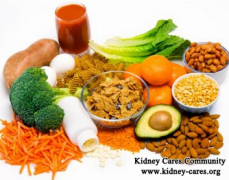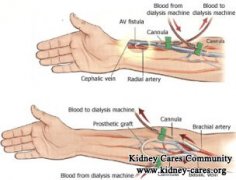 Search
Search
 Search
Search

People on dialysis treatment should follow a special diet to help control blood levels of certain elements, such as potassium, phosphorus, sodium and protein. Some vegetables contain potassium and should be limited by those on dialysis. Wha...Read More

About more than 60% dialysis patients have skin itch after three years dialysis. It does not only affect skin of whole body, but also severely affect the life quality and emotion of patients. Sometimes, it is life-threatening. Can vitamin D...Read More

When your kidney disease develops to stage 4 kidney disease, your doctor may remind you of preparing for a fistula surgery to make a vascular access. The access allows the patients blood to travel to and from the dialysis machine so that wa...Read More

Kidney disease patients have to be dialyzed with an artificial kidney to rid the body of fluids and toxins. Dialysis has two types including hemodialysis and peritoneal dialysis. Some people are wondering if they could ask for some insight...Read More

Women with kidney disease who are on dialysis may wonder how dialysis will affect their chances of getting pregnant and delivering a healthy baby. Is pregnancy recommended for women on dialysis? Generally pregnancy is not recommended for di...Read More

After a patient goes into kidney failure, the patient will need to start dialysis. Patients on both types of dialysis have to be careful about the foods they eat. Phosphorus, potassium, sodium and fluid levels can increase in between dialys...Read More

Will hemodialysis lead to anemia? This question is much concerned by many patients. We invite our director to introduce how hemodialysis causes anemia in detail. The main cause of anemia in chronic kidney failure is kidneys cannot compound...Read More

Some patients may have mental changes during or after kidney dialysis. For example, they may become angry, anxious, depressed, sad, etc. How does this happen? If you want to know more mental changes in kidney dialysis, please go on reading....Read More